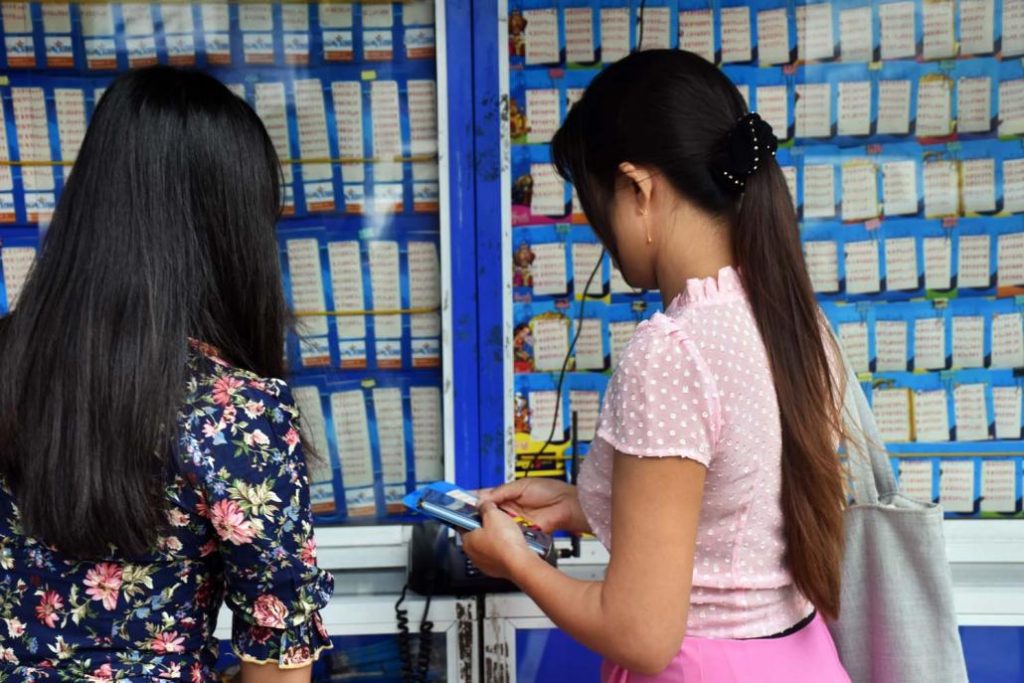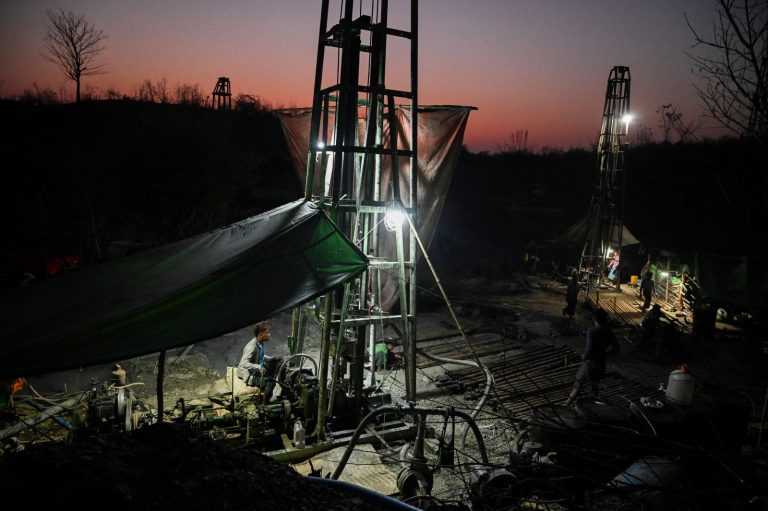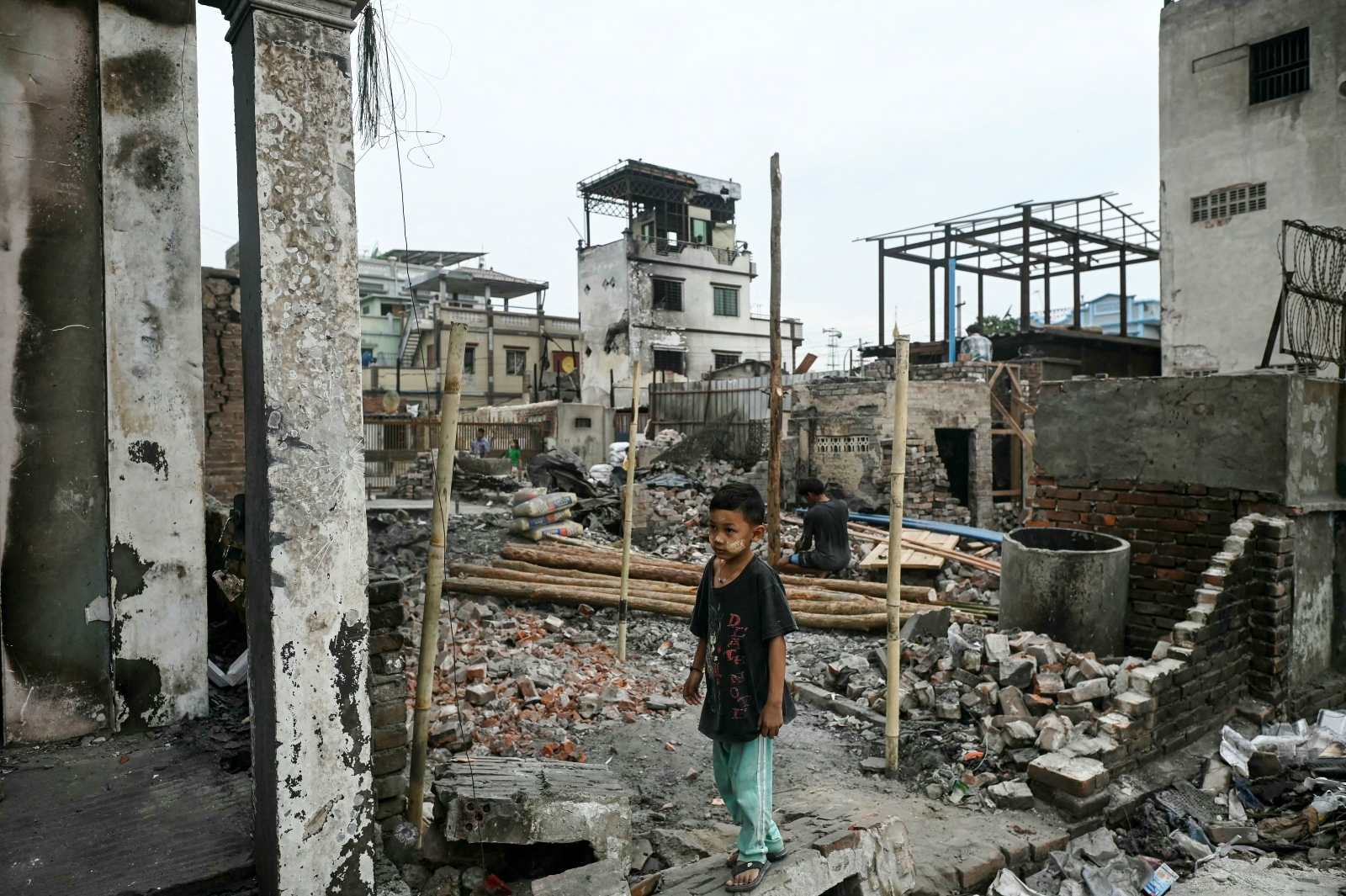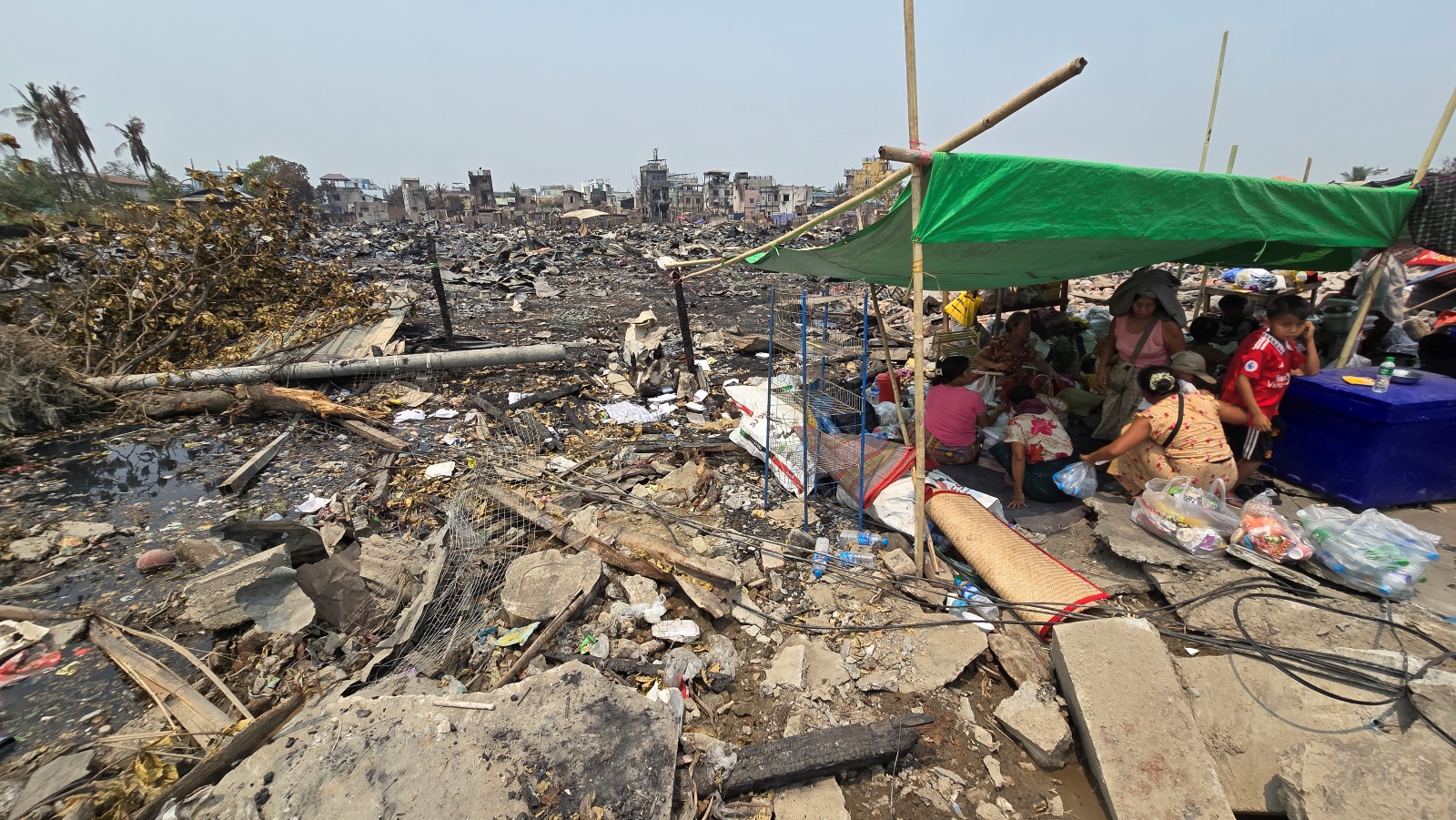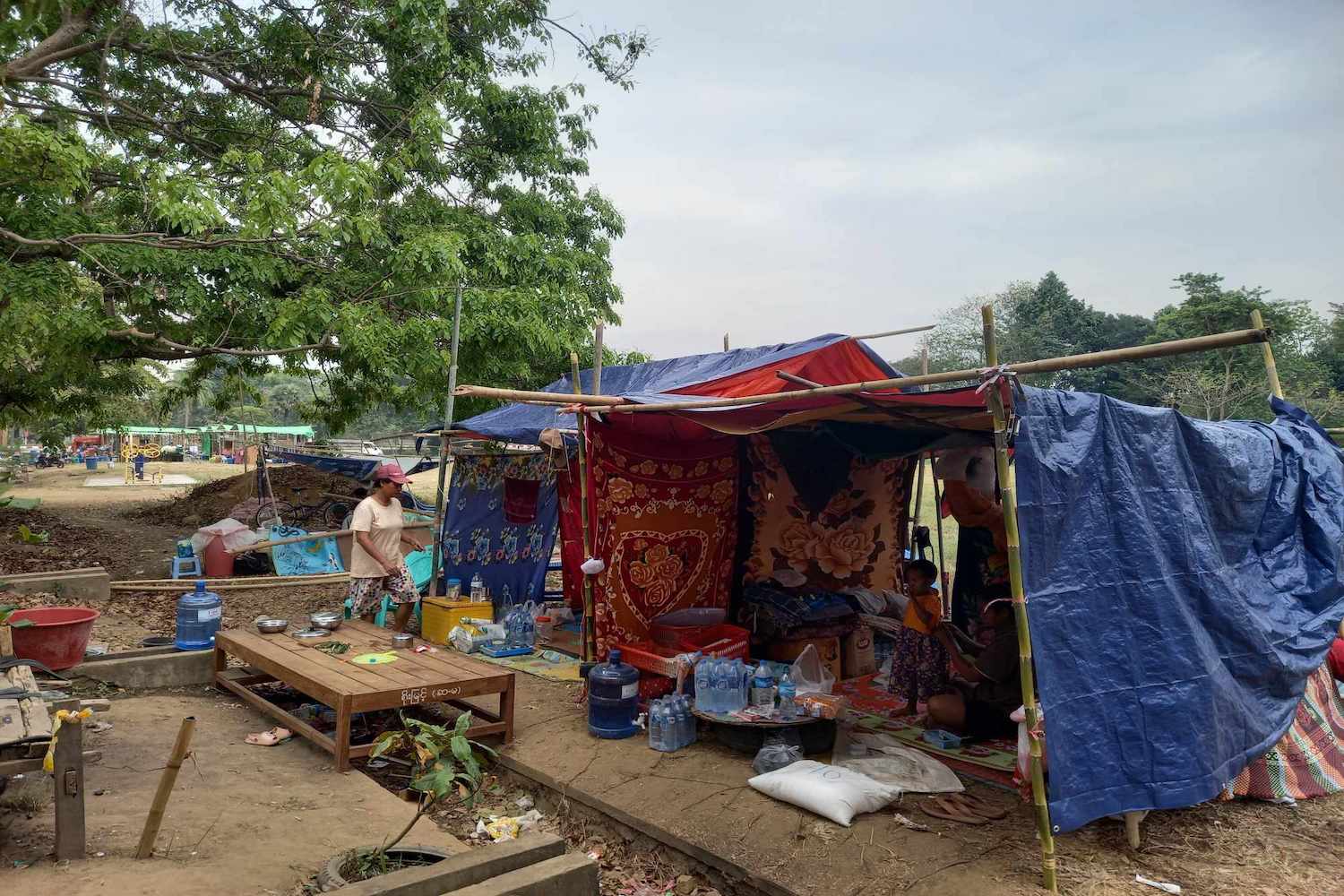Ticket sellers have reported a rebound in sales for the state-run Aung Bar Lay lottery but demand remains well down on pre-coup levels due to a consumer boycott that is denying the junta tens of millions of dollars in revenue each year.
By FRONTIER
For many years the Aung Bar Lay State Lottery was popular in Myanmar, and a lucrative source of government revenue. Buying a ticket every month was commonplace – until the coup.
“From the month of the coup, I stopped buying tickets … because I didn’t want money to go to the military,” said a local woman in Nay Pyi Taw, who preferred not to be named. “People are also saying online not to buy lottery tickets sold by the military.”
The Aung Bar Lay lottery was launched in 1938 and was drawn once every two months until 1989 when it became monthly. In the 2019-2020 financial year, lottery ticket sales earned the government around K160 billion (US$86 million) but the boycott dealt the junta a losing hand. Earnings the following year plunged to K85 billion ($46m), according to figures from the regime-controlled Internal Revenue Department.
After the military seized power, campaigns were run online to convince the public to stop the flow of money to the regime through boycotting products, withholding taxes and participating in the Civil Disobedience Movement. The Aung Bar Lay lottery was a popular target, with messages circulating online urging people to “never buy a lottery ticket”.
The government takes 40 percent of the revenue from ticket sales and the rest is given away as prizes. In the wake of the coup, the state’s profit share from the lotteries almost halved, from K64 billion to K34 billion ($35m to $18m) in the 2020-2021 financial year.
The slump in sales has also been costly for wholesalers and retailers. Wholesalers buy books of tickets by applying to the IRD, which is part of the Ministry of Planning and Finance, and sell the tickets to retailers and individual buyers. Wholesalers are required to pay for their monthly quota of tickets three months in advance.
The IRD does not refund wholesalers for unsold tickets and they do not refund roadside lottery stalls or mobile vendors for any tickets they do not sell. Once a monthly lottery has been conducted, any unsold tickets are wasted.
When ticket sales plummeted after the coup, some wholesalers lost so much money they could no longer afford to pay in advance for the next three months of lottery tickets.
The lotteries are numbered sequentially. The last Aung Bar Lay lottery before the coup was number 23, and it was drawn on January 1, 2021 with more than 200,000 prizes. More than 3 million lottery books, with 11 tickets each, were sold for that lottery. Lottery 24, held on the day of the coup, was also conducted as normal, but after the coup the plunge in sales was so severe that the State Administration Council was forced to twice postpone draws 25 and 26.
The decline in demand that began after the coup continued to accelerate in 2021 and by November average monthly ticket sales had dropped by more than 90pc. The number of prizes distributed had dropped to no more than 4,000. The highest prize in the Aung Bar Lay lottery, formerly K1.5 billion ($808,000), was cut to K500 million ($270,000).
State lottery sales have also been affected by competition from the National Unity Government’s “Spring Lottery” launched on August 15 last year. The SAC responded to the NUG lottery launch by announcing they would increase the proportion of prize money from 60pc of sales to 70pc, the same level as the Spring Lottery.
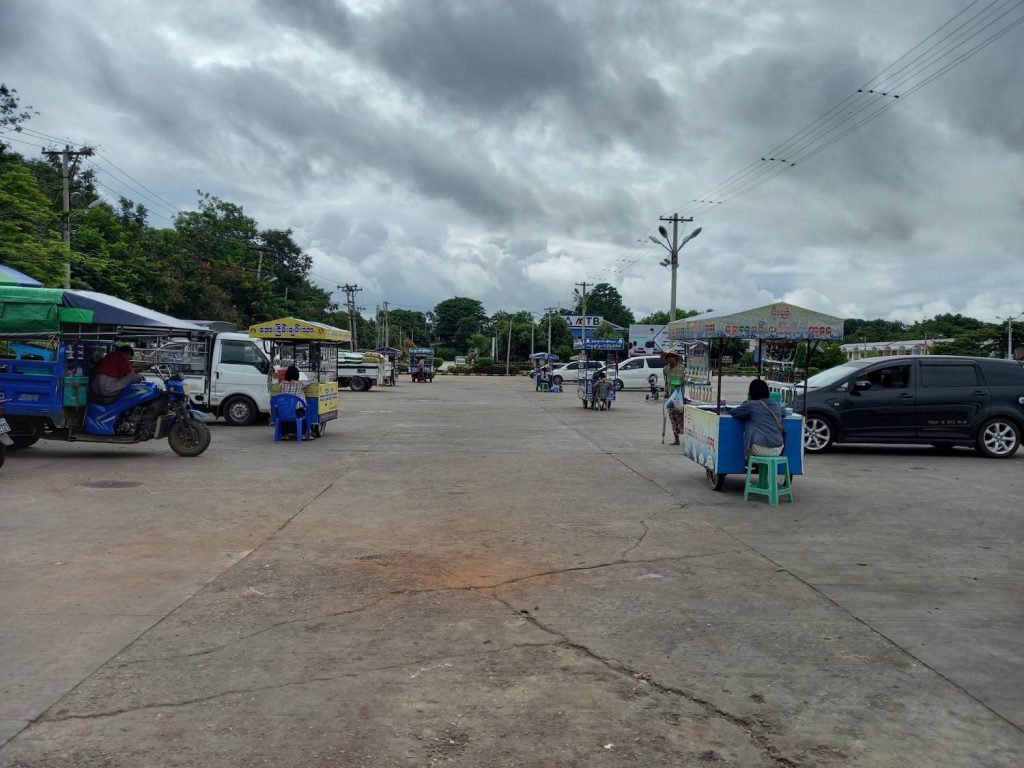
A rebound in sales for Aung Bar Lay
In its 2022-23 budget, which began April 1, the regime forecast lottery revenue of K90 billion ($49 million). This would represent a significant improvement on the months after the coup; although ticket sales were K84 billion ($46 million) in 2020-21, the first four months of the financial year were prior to the coup and therefore not affected by the boycott.
Official data and anecdotal reports from ticket agents and customers indicate a gradual rebound in Aung Bar Lay sales in 2022. After falling to a post-coup low of 100,000 to 200,000 ticket book sales per draw, a total of 280,000 ticket books were sold for the 35th lottery drawn on February 1 this year, the first anniversary of the coup, and more than 300,000 books for the 39th draw on June 1, according to the IRD.
Despite the improvement, sales figures still lag far behind what they were before the military seized power.
A woman who sells lottery tickets near the Let Loke Taung Pagoda in Nay Pyi Taw said her sales dropped to just 400 to 500 tickets a month after the coup. This year they’re up to between 700 and 800 tickets a month, but this is still down on the 1,000-plus tickets she sold each month prior to the coup.
She said ticket sales were likely higher in Nay Pyi Taw than other places as there was greater acceptance of the military takeover.
“Nay Pyi Taw is more peaceful than other places, so I’ve been able to continue selling tickets after the coup, when some people stopped selling tickets because of the boycott,” she said.
“Now you can see more lottery ticket sellers around the pagodas and at bazaars in Nay Pyi Taw, about one week before the lucky-days,” she said. “But you don’t really see the sellers who carry a bunch of ticket books, the ones who used to come into tea shops to try to sell to customers, like you did before.”
Push-cart mobile ticket sellers have also largely disappeared, said Ma Tin Tin Moe, who lives in Pyinmana on the outskirts of Nay Pyi Taw. “Some of the lottery ticket shops that closed after the coup have reopened, but not in large numbers,” she added.
A mobile vendor who sells tickets near the Thapyaygone Market in Nay Pyi Taw’s Zabuthiri Township said that although sales were not brisk, the number of mobile ticket sellers around the market had increased. “I sell about 1,000 tickets a month, but it was more than 2,000 before the coup,” she said, adding that some vendors were now selling tickets online.
In Yangon and Mandalay, residents say they’ve also noticed that Aung Bar Lay ticket sales are on the rise again.
“More ticket sellers have resumed their businesses but not as many as before the coup,” said Daw Khin Thet Maw, who lives in Yangon’s South Okkalapa Township. “You can see a few ticket sellers in the places that used to be busy with ticket sellers before the coup,” she said.
A Mandalay resident told Frontier there were noticeably fewer push-cart vendors, but some big Aung Bar Lay outlets had begun to reopen.
“A big lottery shop in Chan Mya Tharzi Township closed after the coup, but now it’s open,” she said, referring to a township in Mandalay city.
Has the boycott weakened?
Among those who are boycotting the Aung Bar Lay lottery there’s a theory that the recovery in sales is linked to people who have faced hardship amid the economic turmoil since the coup deciding to try their luck because they’ve got nothing to lose.
“Most people are experiencing financial difficulties and it may be that they are trying their luck in the Aung Bar Lay lottery in the hope that it will solve their problems. There may be other reasons, too. But I think most of the people are still boycotting it,” said Ko Naing Wai Yan, who lives in the capital’s Zabuthiri Township.
Naing Wai Yan said that before the coup he was buying at least five tickets a month, but he has since joined the boycott of the Aung Bar Lay lottery.
He bought tickets instead for the NUG’s Spring Lottery, but the parallel administration suspended sales from May 22 so it could improve the service.
When the NUG launched the Spring Lottery on August 15, 2021, the first day’s release of tickets, which cost K2,000 ($1.08) each, sold out in just one hour. The NUG hasn’t given any information about how many tickets were sold in each month’s lottery.
“I don’t think the recovery in sales of the Aung Bar Lay lottery is linked to the suspension of the NUG’s Nway Oo [Spring] Lottery,” Naing Wai Yan said.
Mandalay resident Ma Thin Htwe said she does not like the military council, but sometimes she plays the Aung Bar Lay lottery to try her luck. “During the [National League for Democracy] administration, I played the Aung Bar Lay lottery every month,” she said.
A People’s Defence Force member in Magway Region’s Myaing Township, a stronghold of armed anti-military resistance, said he did not begrudge anyone buying Aung Bar Lay lottery tickets.
“Most people in urban and rural areas are struggling. They’re turning to the lottery out of desperation,” he said. “But we shouldn’t blame people for doing this. We are trying our best but have weaknesses in fulfilling their basic needs.”
The recovery in Aung Bar Lay ticket sales is limited to relatively stable parts of the country, however, and salespeople continue to avoid areas that are experiencing conflict.
“Before the coup, Aung Bar Lay lottery sellers would come in their cars to sell tickets in our village,” said resident of Kyi Kan village in Myaing Township. “Now, they don’t come. We have been busy running away every time we hear the news that military troops are coming to our village; we could not think about playing the lottery,” she said.
Frontier tried to contact officials at the Internal Revenue Department to ask about the recovery in sales of the Aung Bar Lay lottery but did not get a response.
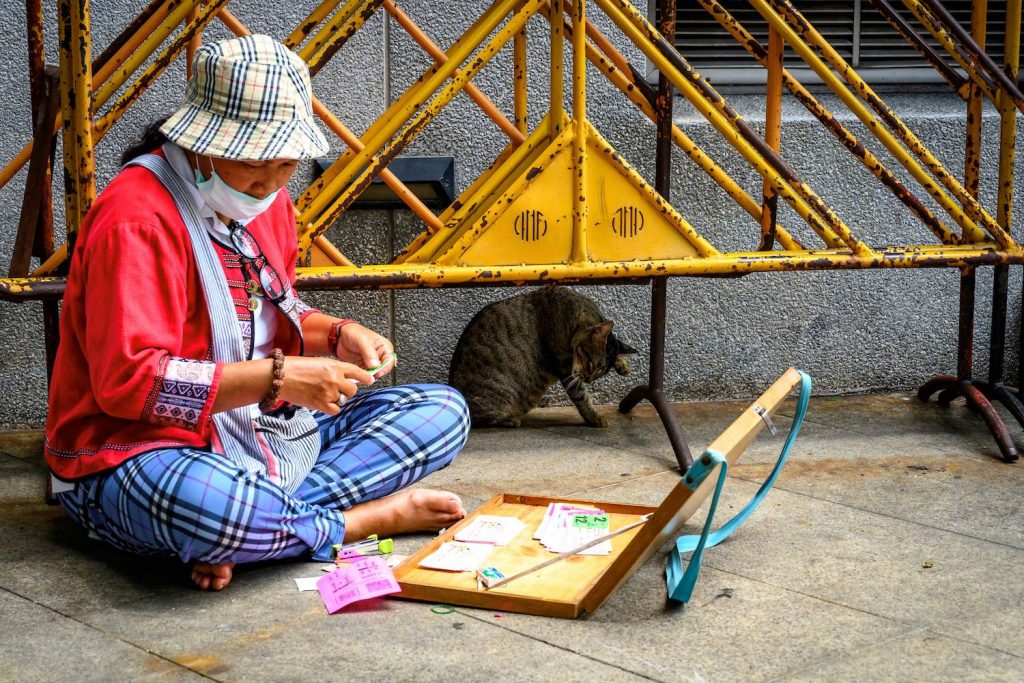
Competition from overseas, underground and online
The Aung Bar Lay lottery has long faced competition from the state lotteries in neighbouring Thailand and in Singapore. The boycott of Aung Bar Lay has contributed to increased demand for the Thai and Singaporean tickets, according to sellers of foreign lotteries.
But one Pyinmana resident who started selling tickets for the Singaporean and Thai lotteries after the coup said they were relatively expensive, so only those on a higher income could afford them.
“I usually buy tickets in the Thai lottery from a Myanmar person living in Thailand,” she said. “I sell the tickets online. The Thai lottery is drawn twice a month and I sell nearly 300 tickets a month. A ticket costs K7,000 ($3.70). People on an average income can’t afford to play.”
Naing Wai Yan said he could understand why people were willing to try their luck on a K1,000 ($0.54) ticket in the Aung Bar Lay lottery.
“But this money will go to the revenue of the military council, so we need to keep boycotting the Aung Bar Lay lottery. Not playing the Aung Bar Lay lottery is like participating in the resistance against the junta,” he said.
Another alternative is the illegal lotteries known as two and three digit lotteries. These involve customers “buying” either a two or three digit number from a black market seller. At the end of the day, the last two or three numbers of the closing price of the Yangon Stock Exchange are the winners.
One woman from Nay Pyi Taw who runs these lotteries said sales had declined after the coup, which she attributed to “most people experiencing financial difficulties”. Her daily sales were about K500,000 prior to the coup, but are now just K300,000 a day.
But sales of the black market number lotteries are also slowly recovering, according to observers in Yangon and Nay Pyi Taw.
As it struggles to deal with declining revenues caused by boycotts of products in which it is involved, ranging from beer to cigarettes, the military regime seems to be preparing to take sales in Aung Bar Lay online.
A draft law leaked in August last year indicated that plans were being made to sell state lottery tickets electronically.
The objective of the draft law is to increase revenue from the Aung Bar Lay lottery, to distribute and sell tickets and award prizes systematically, and to implement an electronic lottery system. If the shift to online lotteries goes ahead, it could affect the incomes of thousands of street sellers and retailers.
A lottery seller at Thapyaygone Market in Nay Pyi Taw wasn’t too convinced of the plan to move ticket sales online.
“Selling lottery tickets online will definitely hurt our income,” she said. “But I think it will take a long time for that to happen.”


